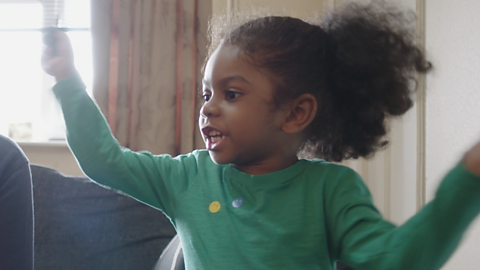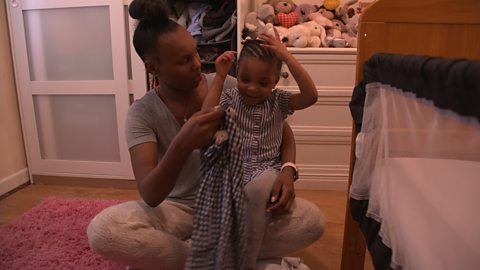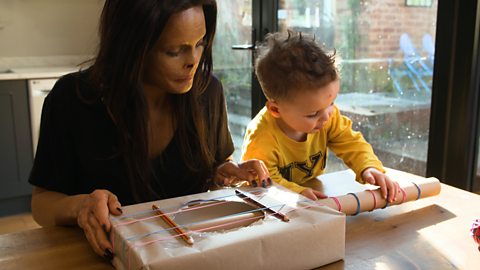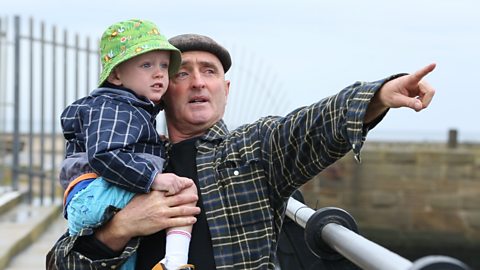Taking time to chat to your child about events during their day will encourage them to use their memory and use the past tense.
However, as you'll see in the video below, you may find they give some imaginative responses!
This is totally fine - ask them lots of simple questions and let them lead the conversation.
Why you should take time to chat to children about their day
- Talking about the past encourages children to use longer sentences.
- This activity helps children develop their vocabulary and their understanding of sentence structure.
- It encourages them to practise the grammar of the past tense, which is an important next step for language development.
- It can allow children to think imaginatively and learn to tell stories.
- It helps them to make sense of their experiences.
Tips for talking to children about their day
Use open question words, such as what, where, when and why. This will encourage them to use full sentences and can spark some imaginative responses.
If they come out with some strange responses, this is fine - they're just using their imagination! Act curiously and ask them lots of questions about whatever they say.
As your child learns to speak in different tenses, it's natural for them to make a few mistakes. When they do this, the best way to respond is to encourage them but repeat the correct words and sentence structure to them.
So if they say, "We see-d fishes", you could reply with "Yes, we did see some fish in the pond." The more they hear you using verbs and tenses in the correct ways, the quicker they will make those links in their brain and pick it up.
Questions to ask instead of "How was your day?"
There are loads of open-ended questions that you can ask your little one about their day. Why not try some of these as a starting point?
- What did we eat for lunch today?
- Where did we see animals today?
- What's one thing that made you laugh today?
- Who did you play with today?
- What fun sounds did you hear today?
Don't forget to give your child lots of time to think about the question and form their answer.
Find out more about talking to your child about past and future.

Image caption, Start with an open question like: 'what did you see on the bus today?'.
1 of 3






